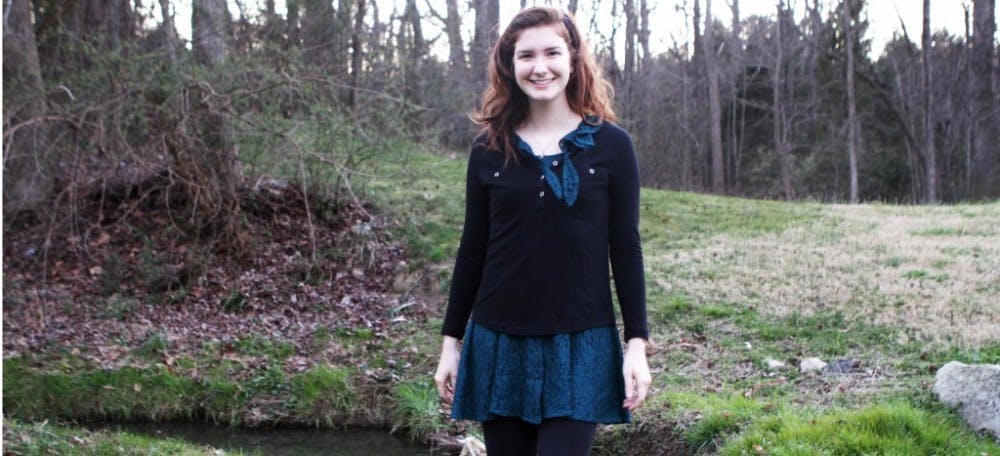For junior Kileigh Browning, undergraduate research is more than a school project: It’s a lifestyle.
“As an environmental and ecological science major, I tend to spend a lot of time outside,” Browning said. “Nature is where I feel the most relaxed. If I have a stressful day, I like to go explore the parks near Elon.”
Browning’s environmental research complements her outdoor lifestyle. She conducted her research in the Great Smoky Mountains National Park, where she collected data for a week in August. Browning examined the effects of two invasive species in the high-elevation forests of the park.
The first is the consequence of the introduction of boars to the ecosystem, and the second is the effect of a tree-killing disease called beech bark.
Browning’s research stems from a problem that started about 100 years ago. According to Browning, boars were brought over from Europe so people could hunt them for sport in a contained area. When the economy declined, the boars were abandoned and set free into the wild.
In the early 1990s, beech bark disease was found at Clingman’s Dome, a popular tourist spot in the park. The disease is believed to have been brought over by a hiker. Brown studied what types of vegetation were growing and determined what percent of the plots were covered by bushes, herbs and rooting. According to Browning, rooting is evidence of boar activity.
As an Elon College Fellow, Browning knew that research was going to be a required aspect of her curriculum. But, she said she sees research as an experience that can span beyond the classroom lab setting.
“I think a lot of people think of research as sitting in a lab with test tubes,” Browning said. “But I knew I wanted to be outside. And I liked the idea of getting all my data collected in one summer.”
Browning has worked to understand the effects of these issues. She has come up with explanations and will be presenting her findings at the National Conference of Undergraduate Research in Utah later this month. She is also compiling her work to submit to a scientific journal.
“One of the things I first noticed about her when she was in my (population biology) class several years ago is that she seems to always be smiling,” said David Vandermast, associate professor of biology and Kileigh’s research mentor. “As a research student, Kileigh is always enthusiastic and her work is always excellent. She is a pleasure to work with.”
While some students may feel limited to sterile classrooms to fulfill their undergraduate research, Browning has found a way to match her outdoor tendencies with the academic feat that is undergraduate research.


